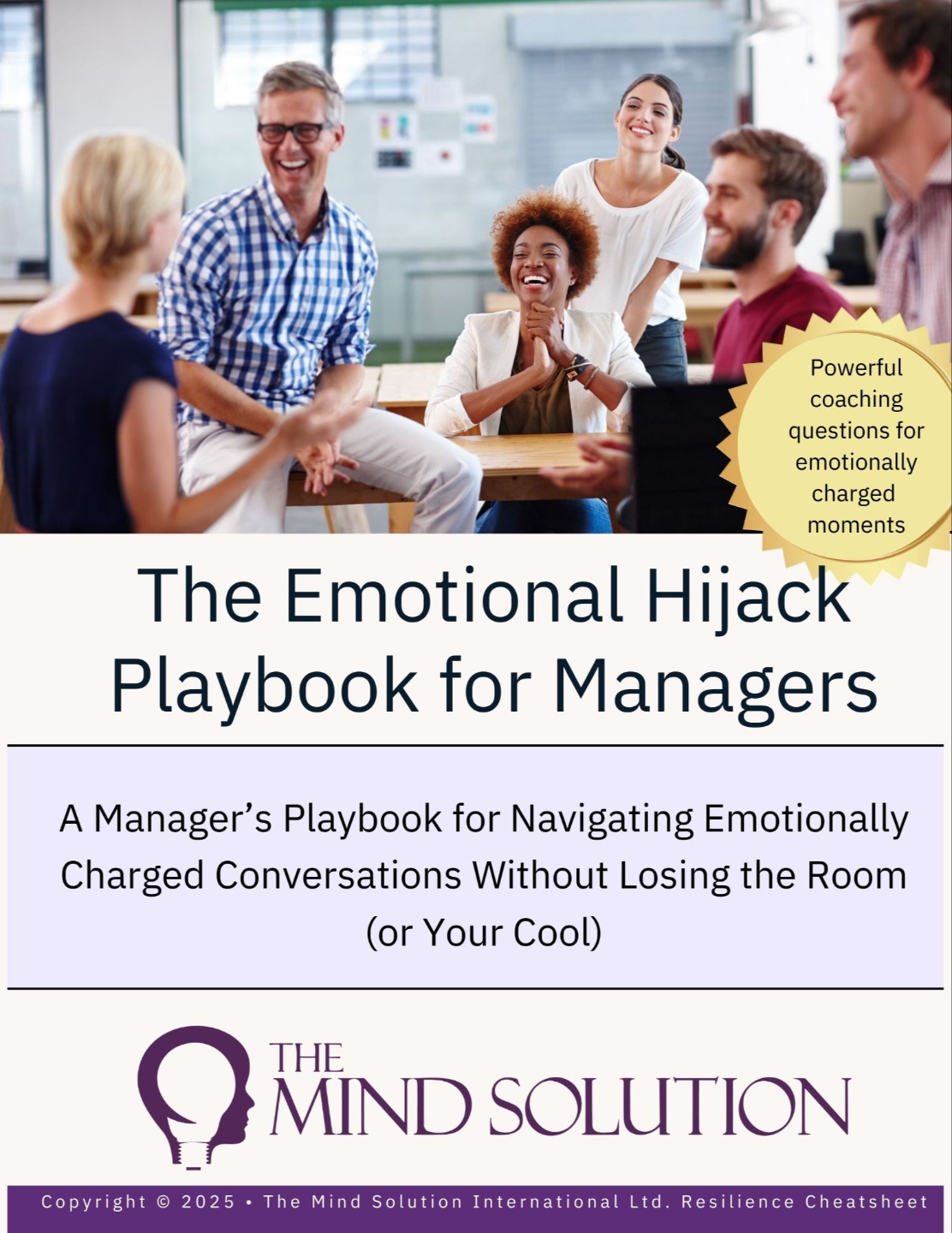Why "Cracking Down on Sick Notes" Doesn’t Tackle the Real Problem
Jul 14, 2025
“GPs should start recommending gym memberships and job coaches over fit notes.”
That’s the line from The Telegraph’s recent reporting on a new government pilot scheme — WorkWell — being trialled across 15 high-unemployment areas in the UK.
According to The Times (June 24, 2024), fit notes have more than doubled from 5.3 million in 2015 to over 11 million in 2024, with 93% issued without a return-to-work plan.
The government’s response? A £64 million initiative aiming to help 56,000 people return to work by 2026.
On paper, it sounds logical: reduce long-term absence, promote healthier engagement with work, and avoid over-medicalising social issues.
But here's what gets missed in that narrative:
Why do people need a sick note in the first place?
And how much of that decision is influenced by the response they get from their manager?
The Blind Spot: Emotional Breakdown vs. Sickness Absence
Earlier this month, I had a call with a former client, now a Head of Sales, who recently took sick leave.
I used to be an HR Manager working alongside sales and commercial teams at British Airways and Virgin Atlantic, and I’ve interviewed enough sales professionals to know a great one when I see one - someone who not only delivers results but leads with passion and presence.
So I was surprised when she told me she’d gone off sick.
Then she explained.
She and her partner of 11 years had decided to separate. They owned a home together, had wills together, it wasn’t just a breakup; it was a complete unravelling of a shared life.
And as that emotional weight settled in, her father became critically ill in another country. She didn’t know if he would make it.
Still, she didn’t ask for time off. She asked for flexibility — to shift her hours temporarily so she could travel and manage what was going on.
The response?
“That’s going to have an impact on the team.”
Not, “How can we support you?”
Not, “Let’s talk about what you need.”
Just a hard line — and a closed door.
So she made the only decision she could: she went off sick. And now, she’s looking for a role where she’ll be treated like a human being.
Mental Health Awareness Training for Managers Is the Missing Link
This story isn’t rare. In over a decade of therapeutic work, I’ve heard versions of it too many times.
And it’s exactly why mental health training for managers (also known as mental health awareness training) is essential.
Because while most training focuses on how to “spot the signs” of stress or anxiety, that’s only half the story.
The other half?
Helping managers understand the impact of their response.
When a team member says, “I need some flexibility,” or “I’m struggling,” how that’s handled can make or break someone’s entire mental state.
The Data Speaks for Itself
This isn’t just a hunch; there’s evidence to back it up.
-
A report from The Times (June 2024) revealed that nearly 2.8 million people in the UK are out of work due to long-term health conditions.
-
Fit notes are now issued without return-to-work plans 93% of the time.
-
According to a UKG Workforce Institute report, 69% of employees say their manager affects their mental health more than their doctor or therapist, the same level of impact as a spouse or partner.
So yes, a gym membership or a job coach might help in some cases, but they’re no substitute for a trained manager who knows how to respond with empathy, awareness, and presence.
Why Training Isn’t Just a Checkbox
Real mental health awareness training for managers goes far beyond PowerPoint slides and symptom-spotting.
Here’s what we focus on in our training:
-
How to recognise the emotional weight behind requests like flexible working
-
How to respond without fear or judgment — especially in complex human situations
-
How to create psychological safety, where people feel they can speak up without penalty
-
How to prevent the preventable — including talent loss, disengagement, and absence
Because let’s be honest:
This isn’t just about anxiety or burnout or the label of “mental health.”
It’s about life. About breakups. Sick parents. Grief. Financial uncertainty. The things we all go through.
If You’ve Ever Been Through It, You Know
If you’re reading this, chances are you’ve gone through a major breakup. Or lost someone. Or watched someone you love suffer.
You know how that messes with your sleep, your energy, and your ability to think clearly.
Now imagine being told, in that state, “That’s going to have an impact on the team.”
Come on.
And while we might hope these responses are few and far between, the reality is, they’re not.
Let’s Build Workplaces That Work for People
We want people to be in work.
We want them to contribute.
To feel connected to a goal or mission.
To be part of building something, whether that’s a product, a service, or a movement.
But when someone’s life is falling apart, and the only response they hear is “That’s going to affect your output,” we’re not just risking sickness absence, we’re risking psychological injury.
The Bottom Line
The Telegraph article may have captured headlines.
But it didn’t capture the full reality.
The reason people go off sick is rarely just about illness. It’s about feeling unsupported, unseen, and sometimes judged.
When we train managers to truly understand the human side of leadership, we:
-
Reduce avoidable absence
-
Retain brilliant people
-
Build emotionally intelligent cultures that thrive
And that’s not just good for people. It’s good for business.
If you’d like to explore what mental health awareness training for managers could look like in your organisation, click here to book a conversation.
Let’s create a culture where empathy isn’t optional — it’s foundational.
The Emotional Hijack Playbook For Managers
A Manager’s Free Resource for Navigating Emotionally Charged Conversations Without Losing the Room (or Your Cool).
Perfect to use in your next one-to-one.







